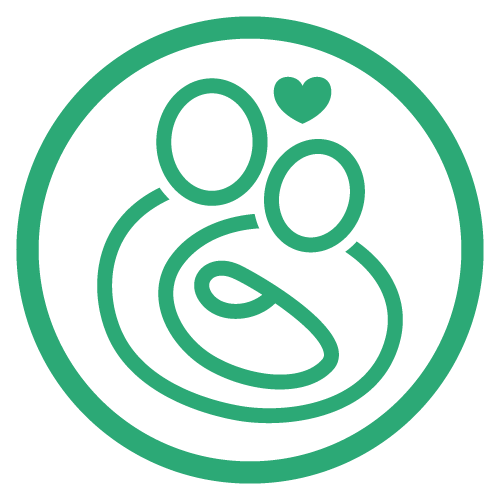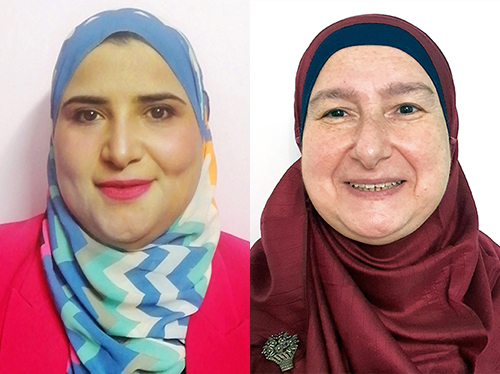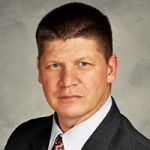
The Importance of Addressing Mental Health & Wellbeing During Pregnancy

Dr Raja Gangopadhyay is a Consultant Obstetrician & Gynaecologist at the West Hertfordshire Hospitals NHS Trust, UK, with a special interest in Perinatal Mental Health (PMH) and a Visiting Lecturer at the University of Hertfordshire (UK). In conjunction with his multidisciplinary team, Raja has been championing joint approaches to perinatal mental health that take into account infant mental health. Raja is a well-known Trainer in PMH and organises teaching, training and Conference for Obstetricians, Midwives, GP and other healthcare professionals. He is a renowned speaker and has been invited to speak at many National and International events. He obtained a Certificate in Medical Education from the University of Bedfordshire, UK. He has been invited to House of Lords meeting as a member of the Expert panel and organised and chaired events at the House of Commons (UK Parliament). He has been invited to many media interviews (Radio/ Television) and views/ opinions have been quoted in many leading UK newspapers. He is the Founder of the International Forum for Wellbeing In Pregnancy (IFWIP): a unique initiative to raise awareness of mental wellbeing during pregnancy from a global perspective (www.ifwip.org)
The presentation will start with the global statistics of mental health conditions during pregnancy and the economic cost to health and social care. Then the impact of stress and mental health problems during pregnancy will be discussed with an outline of 'Foetal Programming'. Subsequently, the practical aspects of care of Perinatal Mental Health conditions will be elaborated with a focus on screening, Care Planning, use of medication during pregnancy and breastfeeding. An outline of the concept of wellbeing will be discussed with lifestyle modification and stress management strategies (NURTURE Approach).
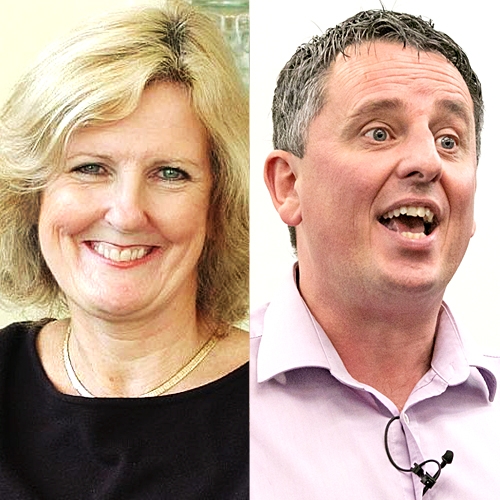
The Importance of Fathers' Mental Health

Jane has been interested and concerned with perinatal mental health(PMH) for over 35 years. During this time Jane has researched attitudes, ethnic beliefs and the mental health of fathers around this time. She is an honorary Lecturer on PMH at Swansea University and is a Past President of the International Marcé Society for Perinatal Mental Health. She is a currently on the Executive Board. She is also on several PMH committees, both nationally and internationally. Jane has written 2 books on PMH and is in the process of writing a third. She has written many peer reviewed articles and has been a speaker at national and international conferences. Jane is the Director of the PMH Training Company which, working in partnership with other experts in the field, including Mark Williams, delivers high quality training to health professionals and those practitioners concerned with families affected by perinatal mental disorders and illness.
Mark Williams is a keynote speaker, author and International campaigner. In 2004 he himself experienced depression and suffered in silence for years until a breakdown. He founded International Fathers Mental Health Day and #Howareyoudad campaign to make sure all parents are having support for the whole family.
Mark has spoken on television and radio stations around the world and works with Dr Jane Hanley who has both published articles on Fathers Mental Health together. Mark was awarded Inspirational father of the year and local hero at the Pride of Britain Awards in 2012 and was invited to meet The Royal Family on World Mental Health Day in 2016.
The importance of fathers’ mental health is increasingly recognized as a significant factor in family life. As the construct of traditional society changes, it is becoming more commonplace for the father to be the primary carer of the infant. Should the mother suffer from a mental illness or disorder, then often the father is her main carer too. Studies have shown that if the father also suffers from mental ill health, this can have a significant impact on the relationship with the mother and have a detrimental effect on the development of the infant. Historically, men are conscious of their role as the provider and protector. The social expectations of men often preclude them from disclosing their feelings; therefore there is a tendency for them to confide their personal concerns to smaller networks of individuals, as they often fear they risk rejection should they admit to them publically. Studies have shown that if the complexities of their relationship with the partner are too much of an encumbrance, fathers often become distressed, frustrated and either withdraw into an activity or sport with which they feel more in control or resort to negative coping skills and misuse drugs and /or alcohol. They are more likely to ask for help when they experience suicide ideation. There are approximately 6,000 suicides annually in the UK.
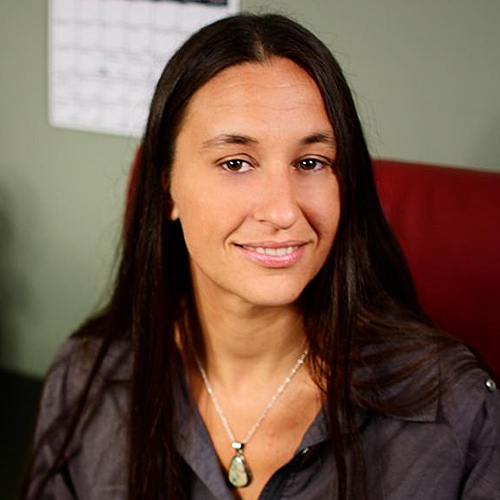

Raised with her Penobscot culture and Native American spiritual practices, Dr. Jus Crea realized the healing powers of nature at a young age. Rich with ancestral knowledge of healing, medicine, and midwifery, Dr. Jus Crea received a Doctorate in Naturopathic Medicine from the University of Bridgeport and a BS in Ethnobotany and Holistic Health from UMass, Amherst. She has also been trained as an auricular acupuncture detox specialist at Lincoln Hospital, WTS therapy for restorative healing as well as Indigenous Midwifery with Mewinzha Ondaadiziike Wiigaming. She is also a Certified Indigenous Breastfeeding Counselor. Dr. Jus Crea has lectured extensively on herbal medicine, ethnobotany, midwifery, naturopathic medicine, environmental medicine, and cultural history and traditions of Wabanaki people. She was previously an adjunct professor of Nutrition at Springfield College and Pathology at STCC as well as a primary care physician in Brattleboro VT. Dr. Jus Crea has been practicing Naturopathic Family Medicine at The Integrative Health Group in Springfield MA since 2005.
Topic: The Importance of Gut Flora in Perinatal Nutrition - [View Abstract]
Optimal gut flora balance is an important part of perinatal nutrition. Our gut microbiome plays a critical role in the prevention of many illnesses and chronic disease. Gut flora can be impacted from genetic and environmental factors including poor diets, antibiotics, cesarean sections, formula feeding, and stress. It is important to optimize gut flora as part of perinatal nutrition for the optimal health of the newborn. Optimal gut flora balance is necessary for balanced immune function, digestive health, preventing chronic metabolic disorders, and mental health. Promoting optimal gut flora in maternal nutrition can aid the health of the newborn baby.

The Integration of Feeding Skills: Oral Motor Patterns and Reflexes

Kristie Gatto, MA, CCC-SLP, COM received her bachelor’s and master’s degrees from the University of Houston in Houston, Texas. She has worked as a speech-language pathologist in the public and private school systems, skilled nursing, rehabilitation and children’s hospitals, and in private practice. In 2004, Ms. Gatto became the co-owner of a private practice in Northwest Houston and began her journey in treating children with pediatric feeding disorders. After years of searching for answers in traditional feeding approaches, she underwent training in the field of Orofacial Myology and became the first certified orofacial myologist in the city of Houston in 2011. Ms. Gatto is currently the owner of The Speech and Language Connection, which has two offices in the greater Houston area and employs 21 speech-language pathologists with various specialties.
For the past ten years, she has focused her clinical skills on treating patients with issues in feeding, dysphagia, deglutition, oral sensory aversion, orofacial myology, and swallowing- related disorders, as well as articulation, phonological processing, apraxia, and early childhood intervention.
Ms. Gatto is a member of the American Speech-Language-Hearing Association (ASHA), International Association of Orofacial Myology (IAOM), American Academy of Private Practice in Speech Pathology & Audiology (AAPPSPA), Texas Speech-Language-Hearing Association (TSHA), and Houston Association for Communication Disorders (HACD). Additionally, she serves on the board of directors for the IAOM and AAPPSPA and the Community Advisory Board for the University of Houston.
Babies are born with lips, tongues, jaws, cheeks and reflexes that were designed for natural acquisition of skills in feeding, drinking, facial expression and, in speech. Oral motor patterns are the functioning of these structures, whereas, the reflexes are the infant’s mode of survival. These skills occur naturally when the oral structure is intact. When abnormality to the anatomy occurs, maladaptive movements are created and compensatory strategies are learned. The infant, child, or adult modifies their muscle functioning to eat, drink, and speak that directly affects the appropriate integration of higher skills during these feeding milestones. This session will address the normal and abnormal oral motor patterns, feeding milestones and the natural integration of the reflexes.

View Details / Enroll

The Intersection Between Lactation, Sleep, and Family Well-Being

Joy MacTavish, MA, IBCLC, RLC is an International Board Certified Lactation Consultant and certified Holistic Sleep Coach focusing on the intersections of infant feeding, sleep, and family well-being. Through her business, Sound Beginnings, she provides compassionate and evidence-based support to families in the greater Seattle area, and virtually everywhere else. She entered the perinatal field in 2007 as birth and postpartum doula, and childbirth and parenting educator. Joy holds a Master of Arts in Cultural Studies, graduate certificate in Gender, Women and Sexuality Studies, and two Bachelors degrees from the University of Washington. She enjoys combining her academic background, analytical skills, and passion for social justice into her personal and professional endeavors. Joy serves as an Advisory Committee Member and guest speaker for the GOLD Lactation Academy. When not working or learning, she can be found homeschooling, building LEGO with her children, or dreaming up her next big adventure.
Topic: Full-Term Breastfeeding/Chestfeeding: Benefits, Considerations, and Ways to Offer Support - [View Abstract]
Topic: Mindful Breastfeeding: How Lactation Professionals Can Support Calm and Connection - [View Abstract]
Topic: Sending Reports: What’s in it for IBCLCs? - [View Abstract]
Topic: Supporting Clients Facing Fertility Treatment - [View Abstract]
Topic: The Intersection Between Lactation, Sleep, and Family Well-Being - [View Abstract]
Topic: Weaning: Supporting Families Stopping Lactation and/or Ending Their Breastfeeding/Chestfeeding Relationship - [View Abstract]
New parents often have questions and concerns about infant sleep, and the changes and challenges that go along with it. It is important to meet families where they are at the intersection between infant feeding, lactation, sleep, and family well-being. As lactation professionals, we can support them in gaining greater understanding of what to expect for infant sleep, as well as how to navigate challenges that may arise while working toward their lactation goals.
This presentation provides evidence-based information about common topics related to lactation and infant sleep. Participants will leave with an understanding of the key steps for how to integrate the management of infant sleep challenges into a lactation care plan. This includes 1.) a process for obtaining information about current sleep, and the variety of factors that may be impacting infant and parental sleep; 2.) elements to consider as a lactation care plan is created; and 3.) how to provide evidence-based information and resources in a compassionate manner that will allow informed decision-making about next steps toward their lactation and sleep goals. Incorporating this process into one’s practice will lead to more comprehensive care plans that take into account the realities and needs of the each family.
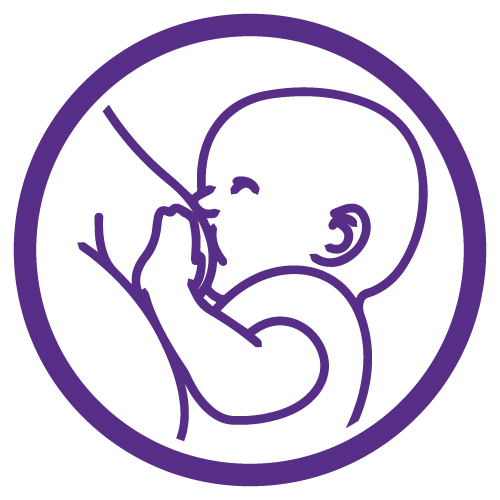
View Details / Enroll
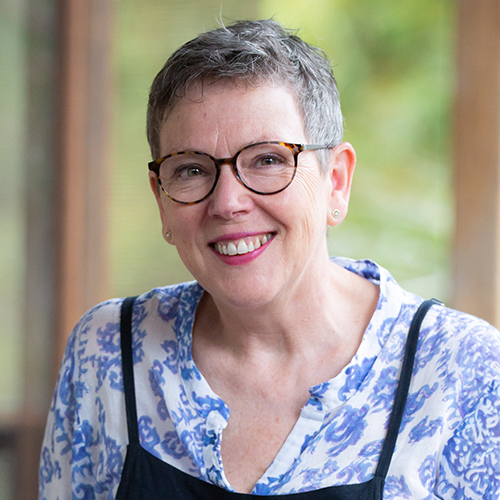
The Issues in the Pelvic Tissues and Some Possible Solutions

Fiona has been a midwife for 32 years. She is also a registered nurse and maternal & child health nurse, a birth educator and bodyworker. She has worked in Melbourne public and private birthing hospitals and has supported many families with the birth of their babies at home and in hospital. Interwoven throughout her midwifery practice has been an involvement in midwifery education and the teaching of Birthwork Workshops. The focus of all birth related teaching is on the dynamic pelvis and how to make space for the baby. Fiona is also a Spinning Babies® Approved Trainer. When not teaching workshops, Fiona offers bodywork sessions to women in a 1:1 capacity, with particular emphasis on internal pelvic release work. She has been instrumental in establishing the Internal Pelvic Release Work Mentoring Program in Australia. Fiona’s drive to teach is fuelled by a desire to see childbearing women hold birth knowledge, learn to honour their pelvic treasures and work with their innate power and in so doing, eradicate birth trauma. Fiona lives in Melbourne, Australia.
Topic: The Issues in the Pelvic Tissues and Some Possible Solutions - [View Abstract]
The soft connective tissues of the pelvis are so underestimated in their potential impact on birth. The tension held in the web of pelvic tissues can be known or unknown and either way, can cause havoc when baby is attempting to spiral through mother’s pelvic tunnel. Where do these issues in the tissues come from and what can we do about them as carers at birth? How can we work with these soft tissue connections creatively to make space?
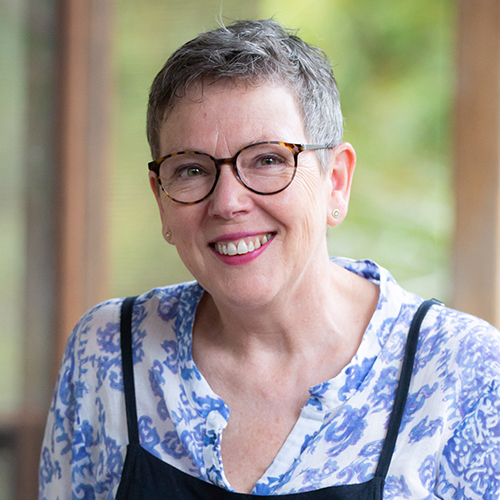
View Details / Enroll
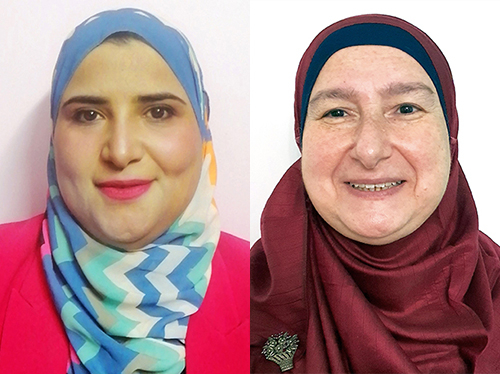

Dr. Fayrouz Essawy, pediatrician, neonatology consultant, an international board-certified lactation consultant, Neonatology Egyptian fellowship trainer, a baby friendly hospital initiative coordinator and associate alumni, Harvard Medical School Harvard Graduate of Training Of Trainer program 2020. Harvard Graduate of Egypt Clinical Scholars Research Training (CSRT) program 2021. Member of the Egyptian Society of Pediatrics Member of the Egyptian Lactation Consultants Association (ELCA) Member of the Academy of Breastfeeding Medicine (ABM) Member of the International Lactation Consultant Association (ILCA).
Amal Aly Roshdy Hassan Eltawil is a graduate of Faculty of Medicine, Cairo University, class of 1986 who obtained Masters of Pediatrics in 1992 from Faculty of Medicine, Cairo university, and Doctorate of Pediatrics from Al Azhar university in 2002. Amal became an IBCLC in 2003. Since 2004 she has been providing a pre-exam course for the Egyptian Lactation Consultants' Association of which she is a board member, treasurer and education coordinator. She is also a member of the Advisory committee of IBFAN Arab world since 2012. Amal is a member of ILCA since 2008 and a member of the Academy of Breastfeeding Medicine (ABM) since 2009. She became a fellow and Board member of ABM in 2021.
Breast milk can appear in many different colors. Most of the time these colour variations are normal, but sometimes they are an indicator of disease and it's important for care providers to know the difference. The presence of an unusual milk color, especially with colostrum, may also be a barrier to exclusive breastfeeding as it can be worrying for parents. This presentation will examine some of the various colours of breastmilk such as blood-stained, blue, and bluish-green, pink and brownish. Case studies will help identify the causes of these colour variations and when to consider underlying disease.
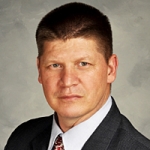

Tom Johnston is unique as a midwife and lactation consultant and the father of eight breastfed children. Recently retired after 27 years in the US Army, he is now an Assistant Professor of Nursing at Methodist University where he teaches, among other things, Maternal-Child Nursing and Nutrition. You may have heard him at a number of conferences at the national level, to include the Association of Woman’s Health and Neonatal Nurses (AWHONN), the International Lactation Consultant’s Association (ILCA), or perhaps at dozens of other conferences across the country. In his written work he routinely addresses fatherhood and the role of the father in the breastfeeding relationship and has authored a chapter on the role of the father in breastfeeding for “Breastfeeding in Combat Boots: A survival guide to breastfeeding in the military”.
Topic: Human Milk Synthesis: Just When You Thought You Knew - [View Abstract]
Topic: New Insights Into the Maternal Child Microbiome - [View Abstract]
Topic: Promoting Provider Self-Efficacy in Breastfeeding Support - [View Abstract]
Topic: Still Swimming Upstream: Breastfeeding in a Formula Feeding World - [View Abstract]
Topic: The Making of Human Milk: A Clinical Update - [View Abstract]
Topic: The Maternal-Child Microbiome or: The “Oro-boobular axis” - [View Abstract]
Topic: The Maternal-Child Microbiome or: The “Oro-boobular axis” - [View Abstract]
Topic: The Perinatal Microbiome - [View Abstract]
Topic: Using Evidence to Develop Clinical Lactation Skills - [View Abstract]
Did you know that a mother who breastfeeds her child is more likely to “match” as an organ donor than a mother who does not breastfeed her child? How does that happen? The answer may lie in the Maternal-Newborn Microbiome, AKA “The Oro-boobular” axis. The scientific world is exploding with excitement over the discovery of the microbiome. While it appears clear that a suckling infant’s intestinal microbiome communicates with the mother’s lactocyte and perhaps beyond, little is known about the effects of this communication in practical terms. This presentation will review what is known and attempt to explain what it means, both now and in the future.

View Details / Enroll
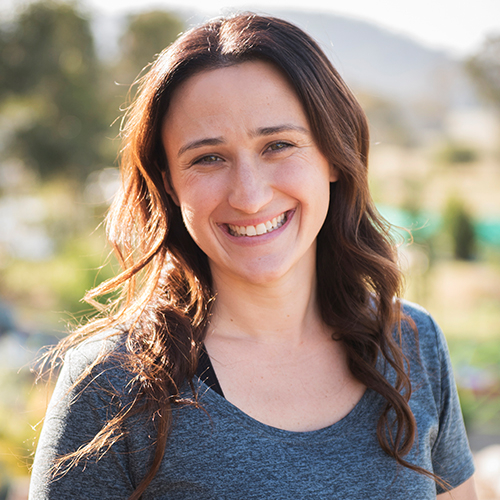
The Midwife's Role in Core and Pelvic Floor Health During the Perinatal Period

Bernadette is a midwife with a Master in Public Health (MPH), core and pelvic floor specialist, published author and previous pant wetter. She has worked in midwifery across Australia from remote Aboriginal Communities to big city hospitals to publicly funded homebirth. She spent a year volunteering as a midwifery educator in the Solomon Islands and teaches midwifery emergency courses in rural and remote areas around Australia. She was awarded the Sidney Sax award for best overall performance in her MPH. She is also the Founder and Creator of Core and Floor Restore – online education and exercise programs, workshops, and consultations. Her passion is to enable people to use their bodies and minds to their greatest ability in all aspects of life. A big part of her work is centered around emotional and physical birth trauma and postpartum recovery. She offers free online antenatal classes and co-host's "The Great Birth Rebellion" an evidence-informed podcast. Bernadette’s life mission to bring the rate of birth trauma down to zero whilst simultaneously improving postpartum care. She has epically birthed two babes at home and recovered from incontinence and prolapse. When she isn’t working or studying you can find her out bush, camping and hiking or splashing in the bath at home with her boys.
Up to 75% of women will experience a prolapse in their lifetime. 1 in 3 will experience urine incontinence and 1 in 10 faecal incontinence. Around 60% of women experience diastasis recti. Add in pelvic girdle pain, a hypertonic pelvic floor, perineal and vulva trauma, vaginismus, vulva varicosities, anal fissures and haemorrhoids and most women, at some point, will describe their body as feeling broken.
Midwives play a crucial role in assisting women in the prevention and treatment of these conditions. International guidelines and clinical standards advise that pregnant and postpartum people should be doing pelvic floor muscle training (PFMT). This however, is not just as simple as doing Kegels while waiting at traffic lights. In order to provide best care, midwives need a deeper understanding of the physiology of the core and pelvic floor in pregnancy, birth and postpartum.
This presentation will enable a deeper understanding of the physiology of the core and pelvic floor during pregnancy, birth and postpartum. You will learn practical techniques to assist women in protecting their core and pelvic floor during these stages, including how best to support physiological birth and what we can do when interventions occur. We will also cover techniques and realities for postpartum healing and evidence-based advice to managing existing conditions.
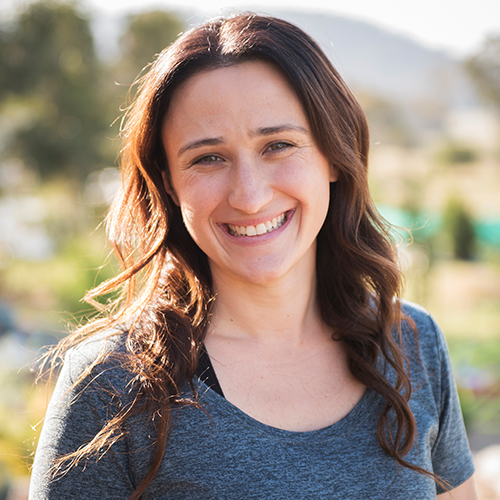
View Details / Enroll


Lisa Marasco has been working with breastfeeding mothers for 35 years and has been Internationally Board Certified since 1993. She holds a Master’s degree in Human Development with specialization in Lactation Consulting and was designated a Fellow of ILCA in 2009.
Lisa is co-author of Making More Milk: The Breastfeeding Guide to Increasing Your Milk Production, a contributing author to the Core Curriculum for Interdisciplinary Lactation Care, and a Cochrane Collaborative author. She is employed by WIC of Santa Barbara County while she continues to research, write and speak. In addition, Lisa is affiliated with La Leche League of So. Calif/Nevada, and serves on the Breastfeeding Coalition of Santa Barbara County.
Topic: Deciphering the Lactation Curve - [View Abstract]
Topic: Developing An Action Plan for Mammary Hypoplasia: Improving our Understanding to Optimize Care - [View Abstract]
Topic: Getting a Better Grip on Prolactin - [View Abstract]
Topic: Recognizing When Things Are Heading South - [View Abstract]
Topic: The Mysterious Milk Ejection Reflex - [View Abstract]
Milk removal drives milk production and feeds the baby. The ability of a baby or pump to remove milk from the breast depends strongly on the milk ejection/letdown reflex. While normally robust, a number of factors can influence this reflex, some more obvious than others. When milk flow suddenly becomes an issue, the rush is on to determine why and what to do about it. This session will take a deeper look at how this reflex works, factors that can affect it positively or negatively, and potential strategies to help.

View Details / Enroll




